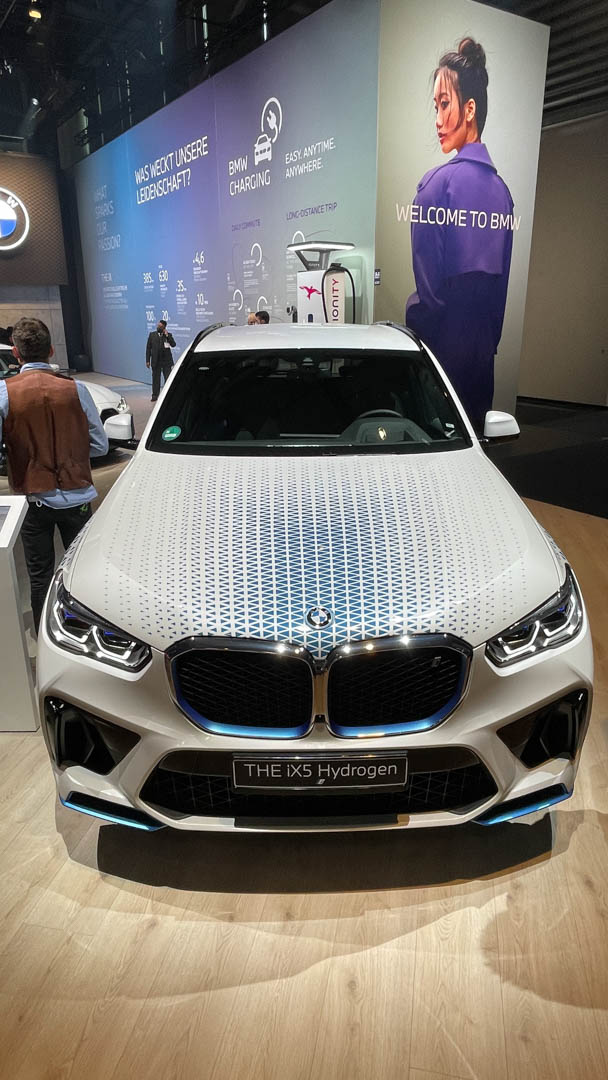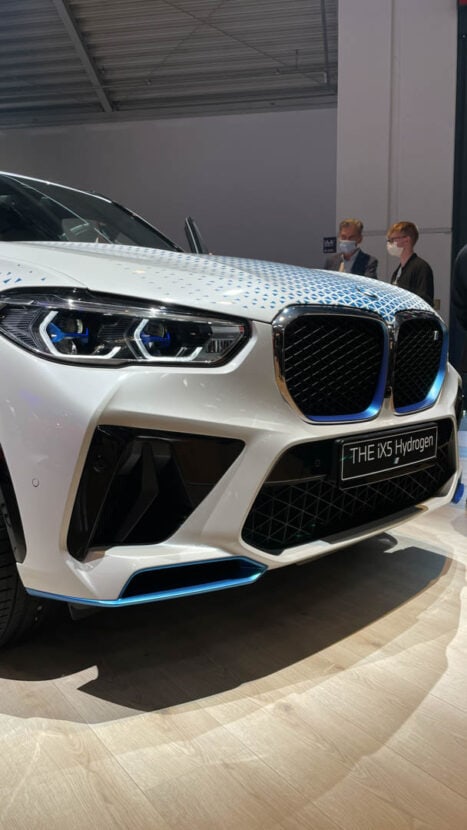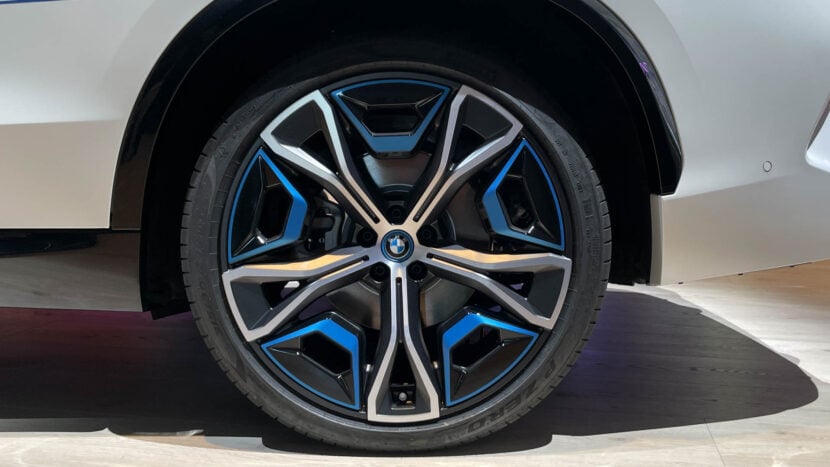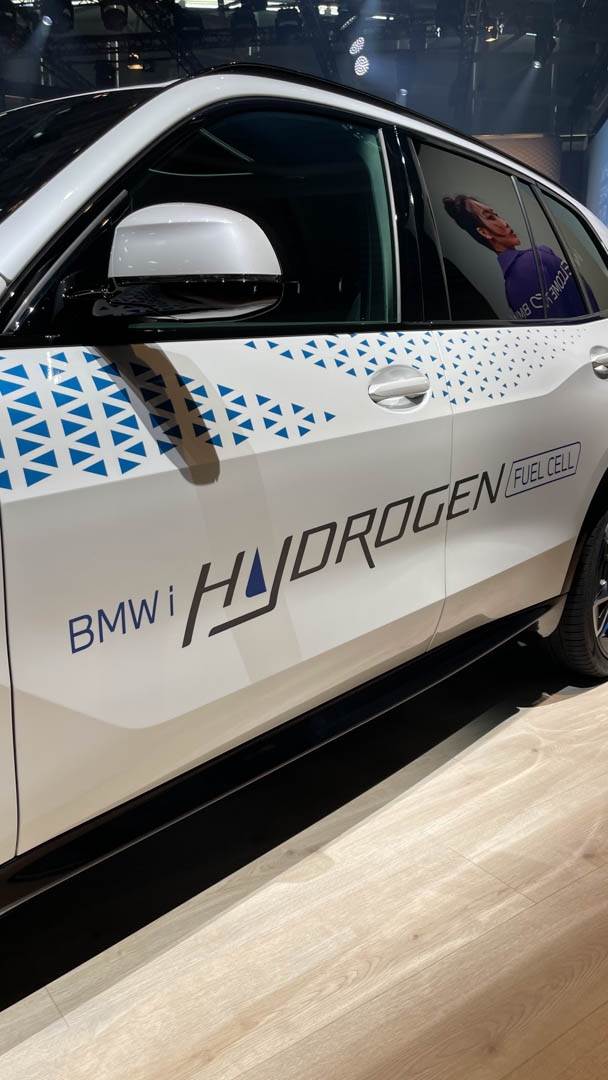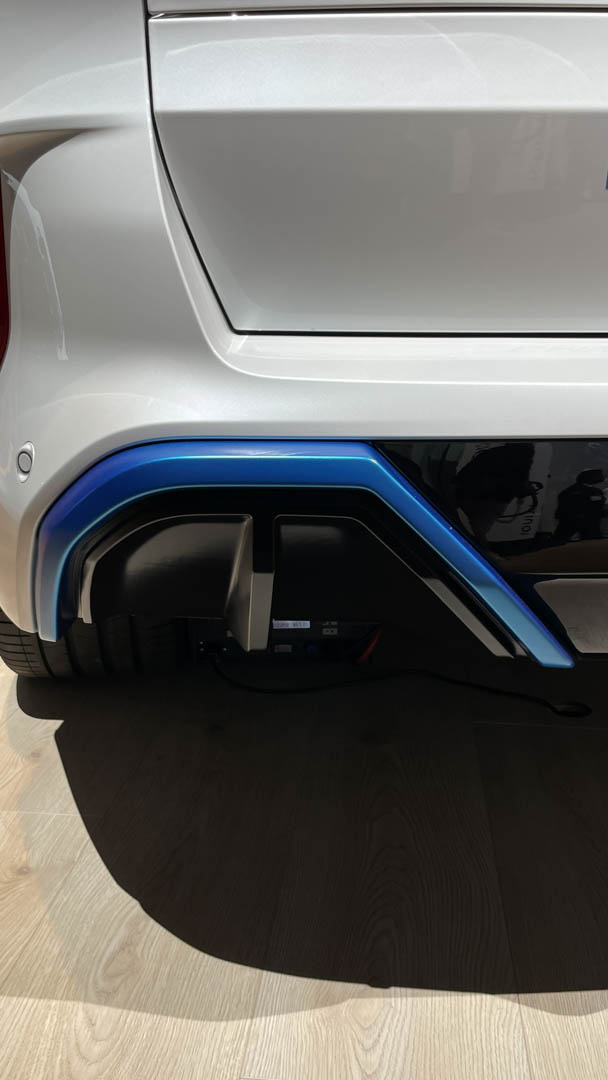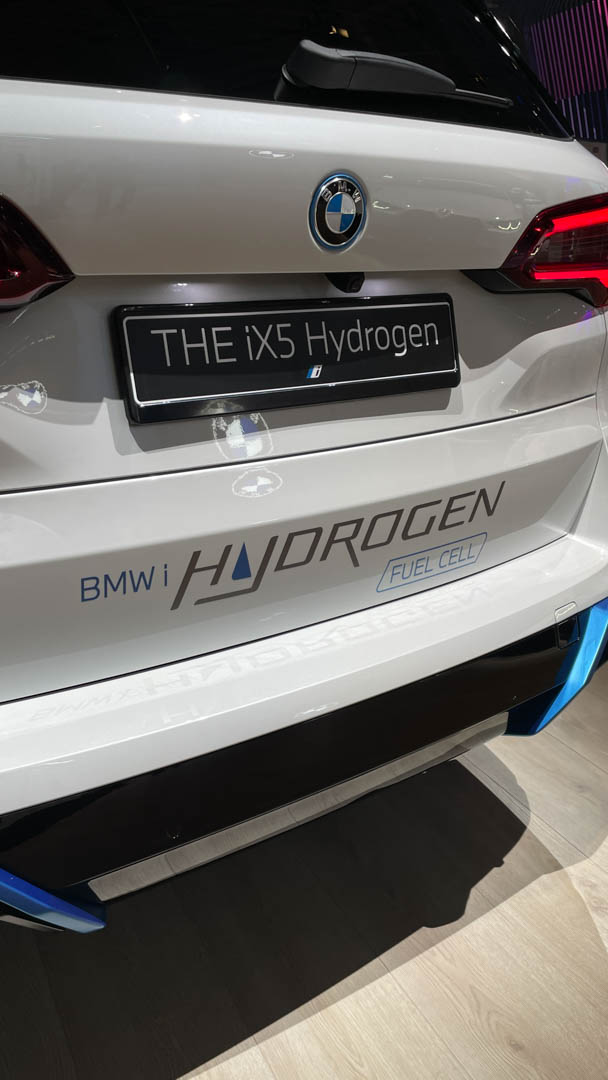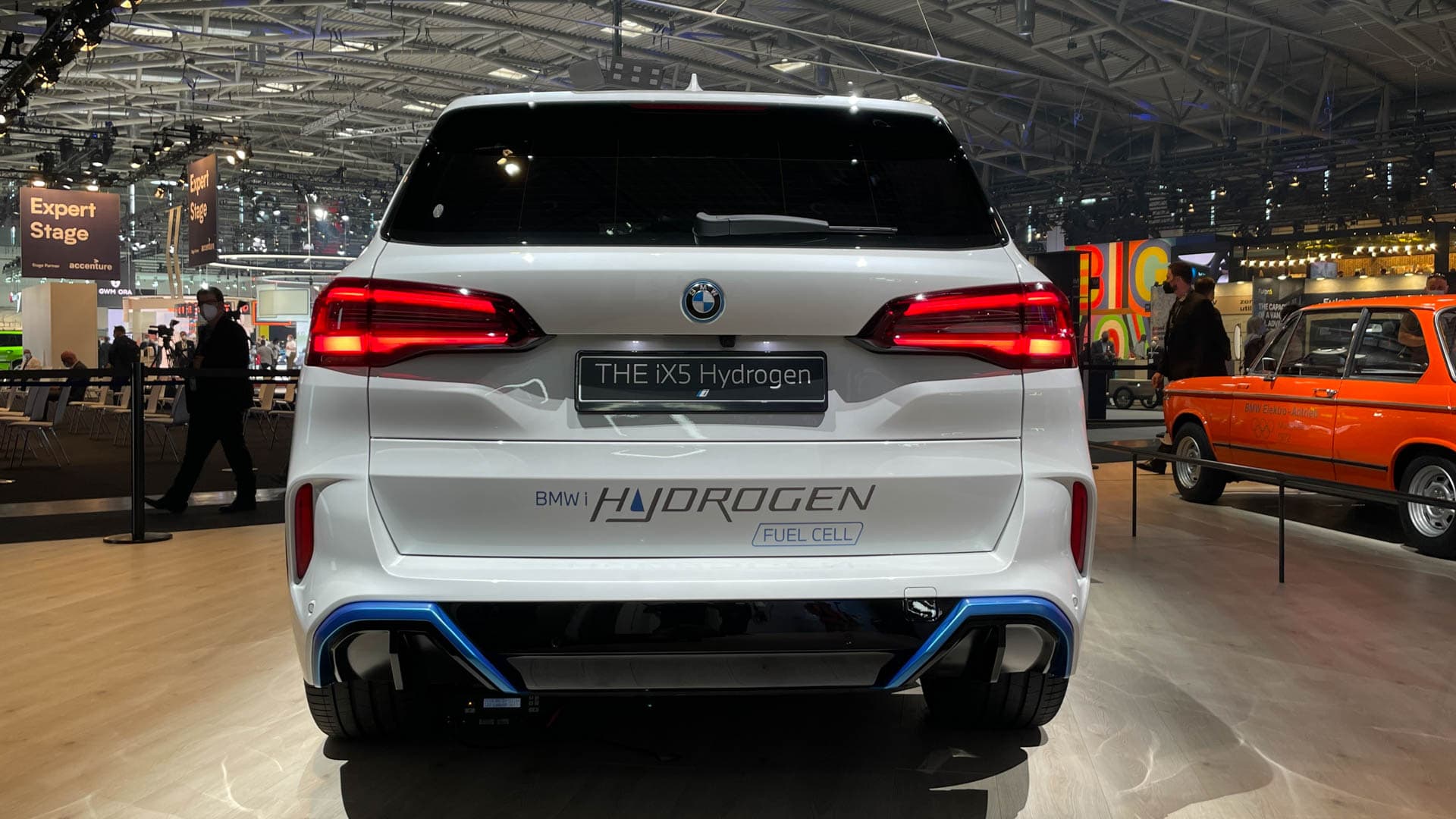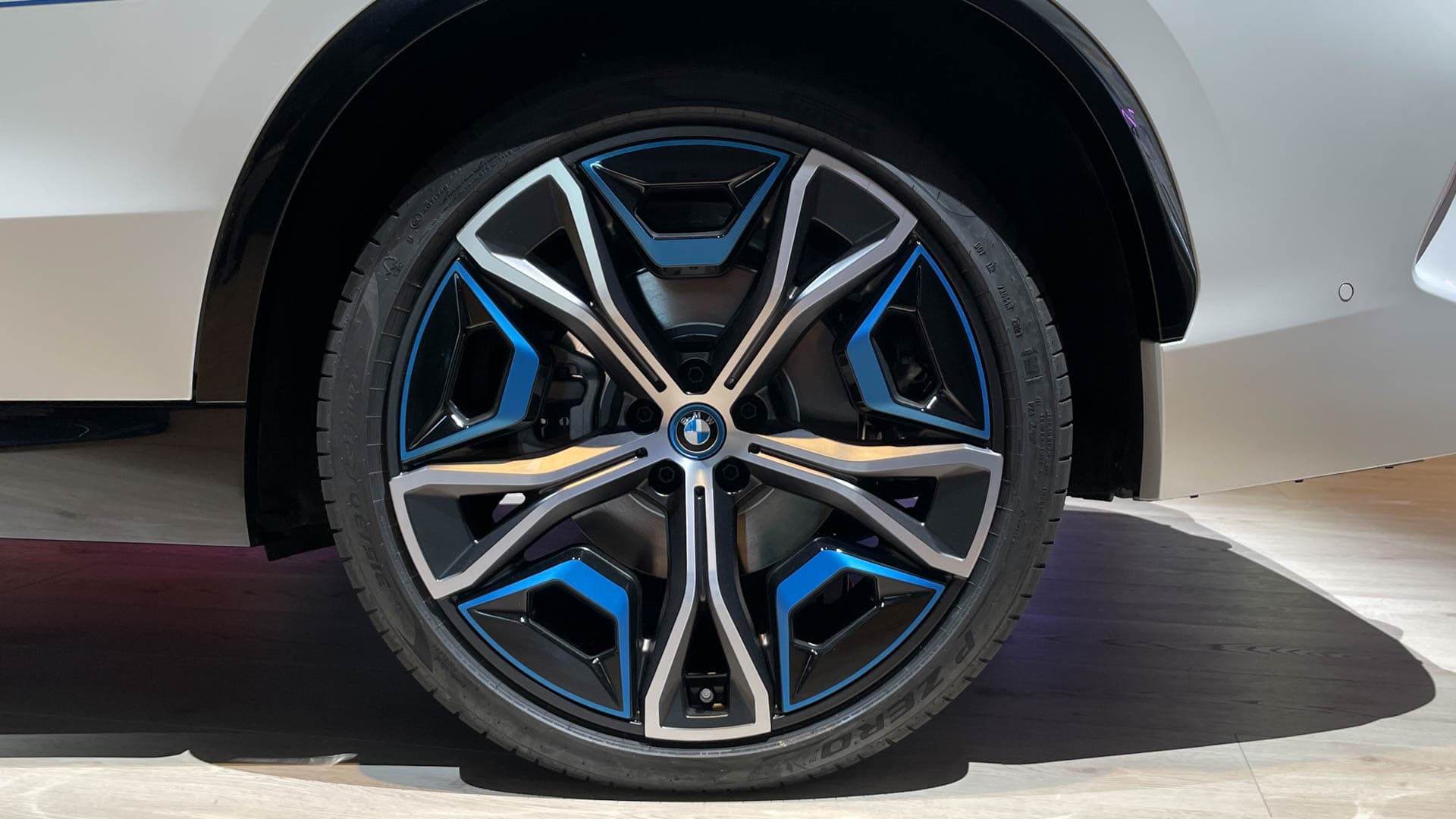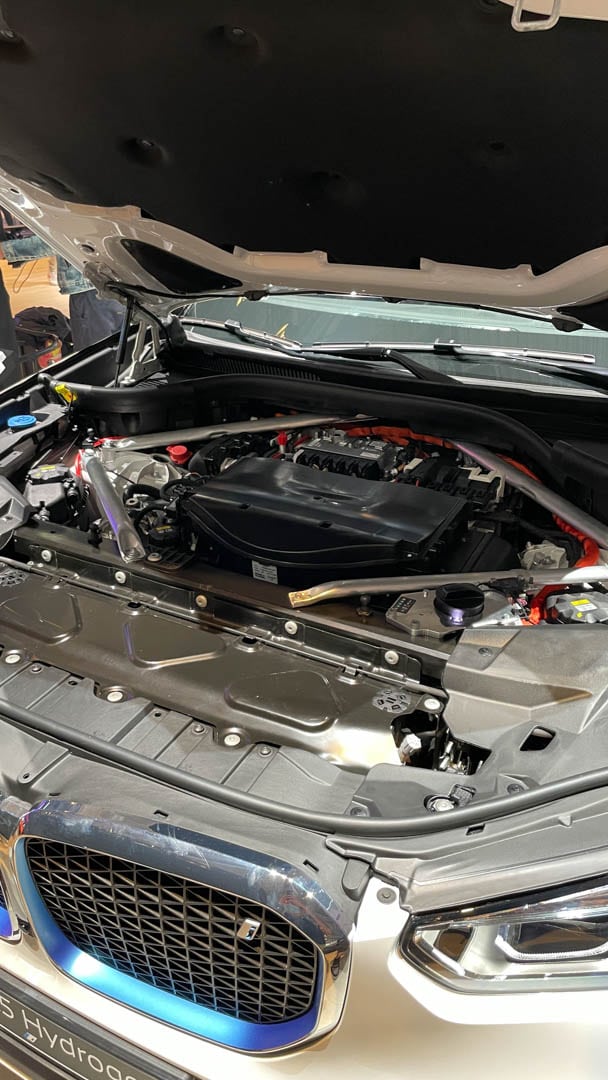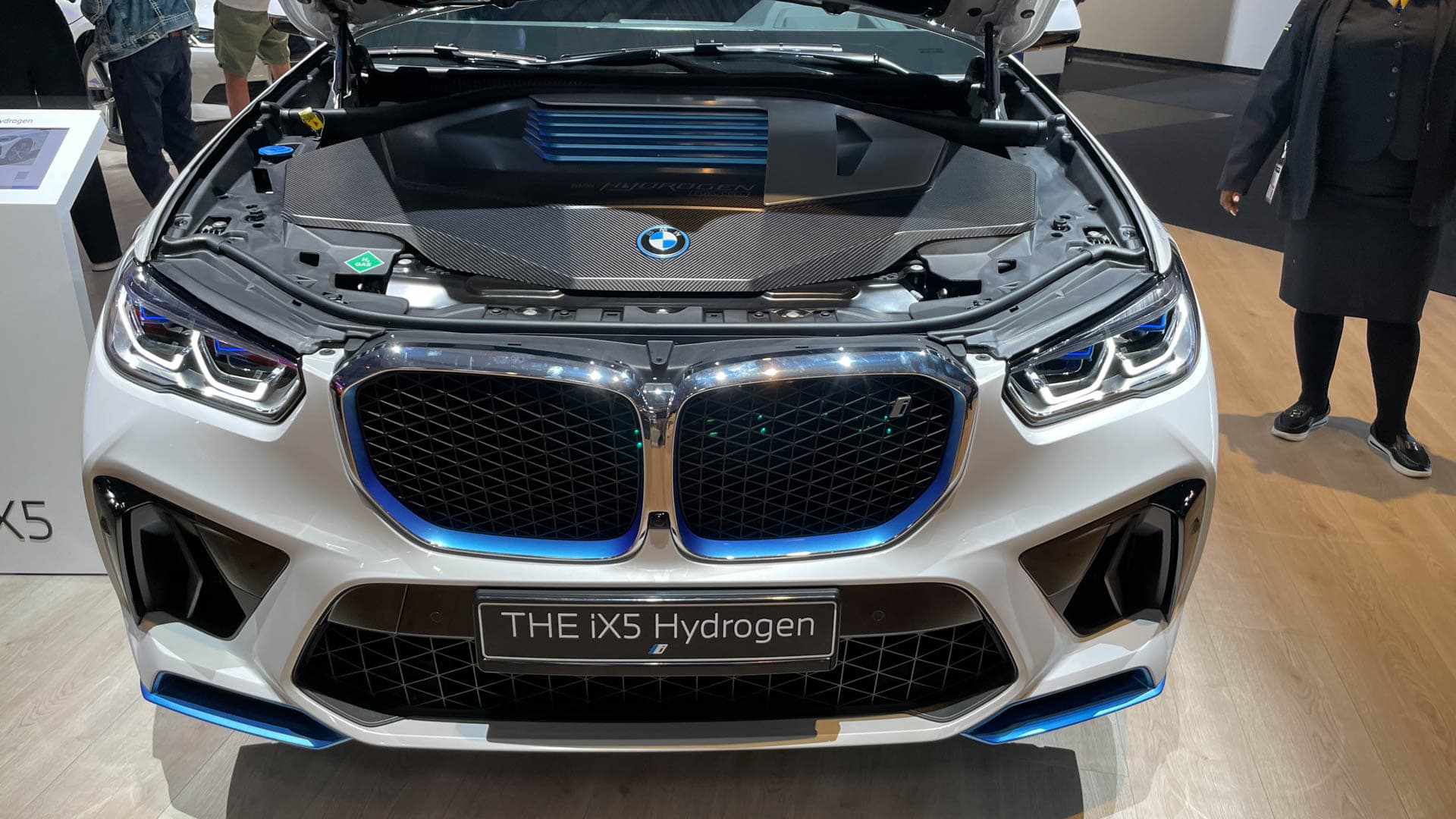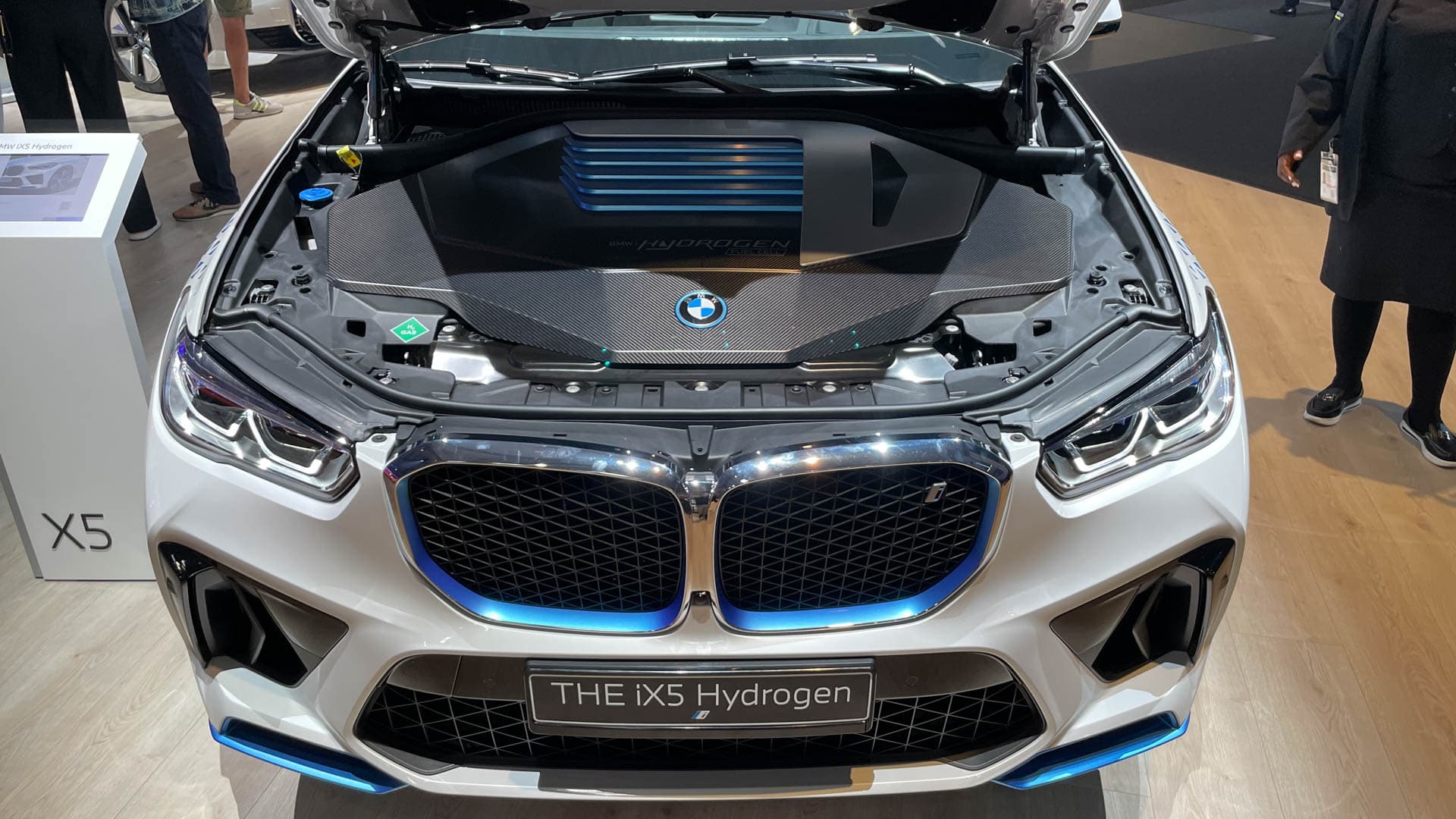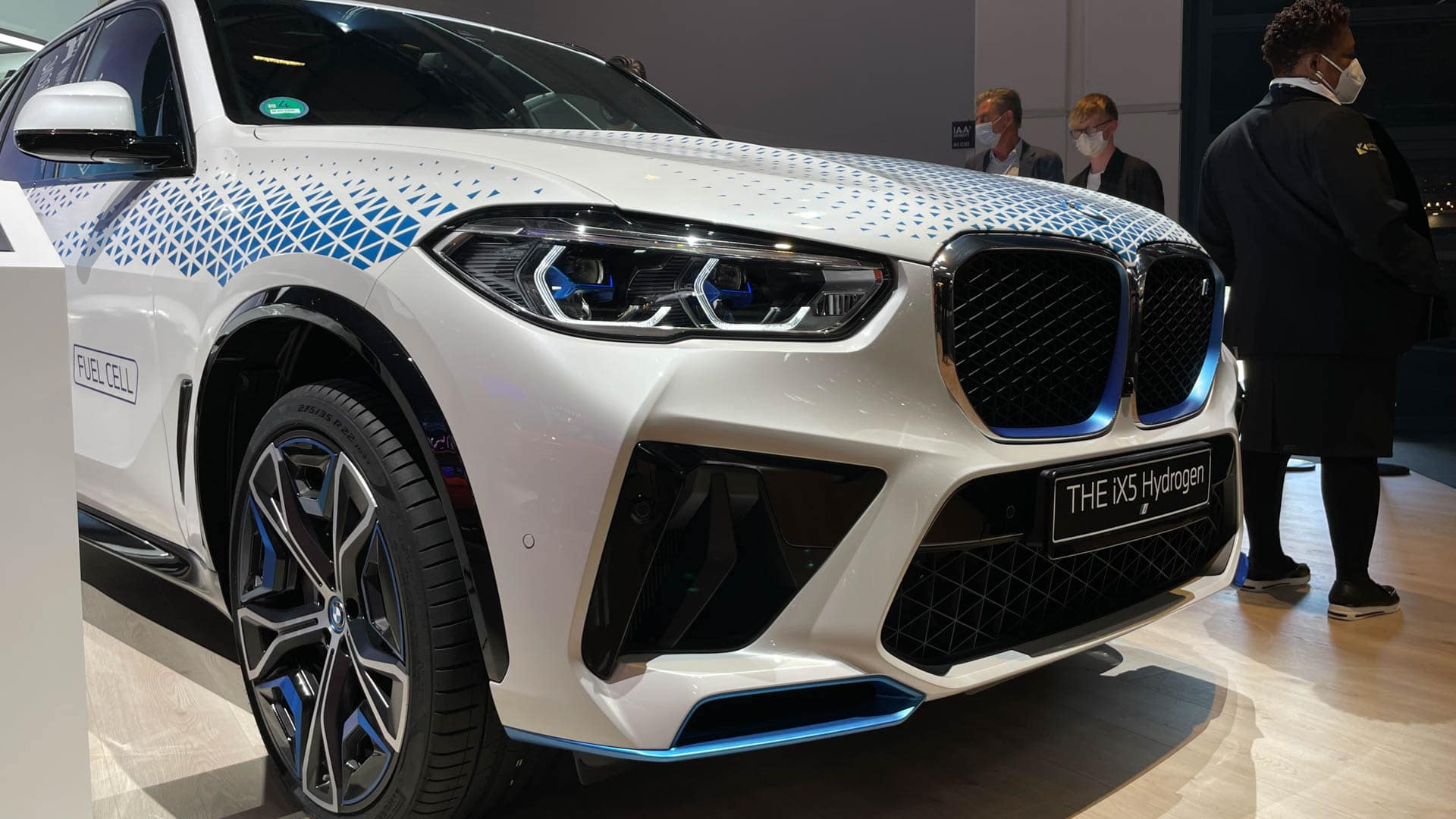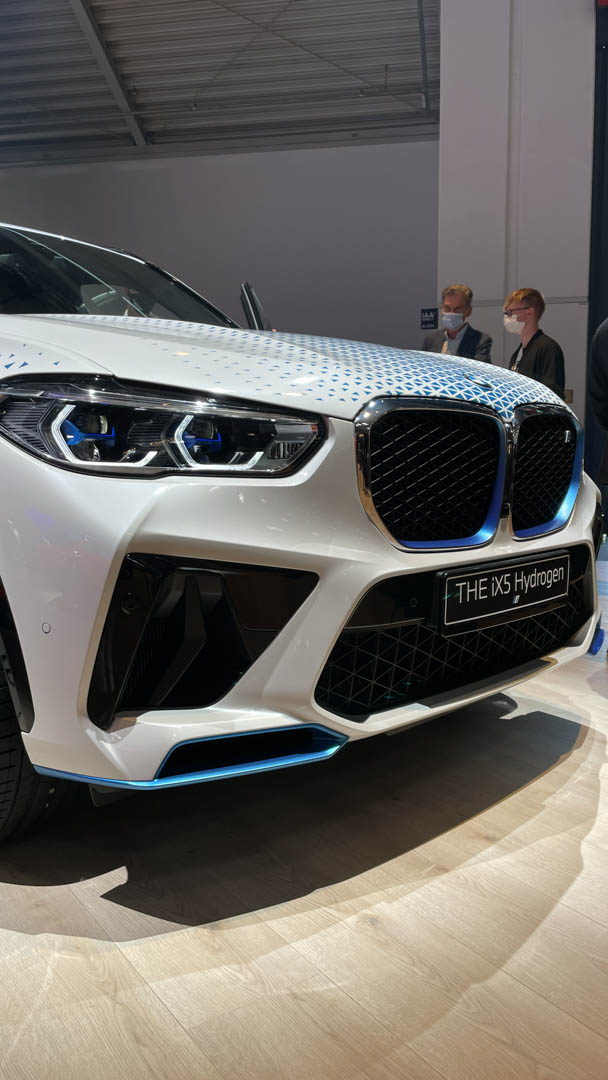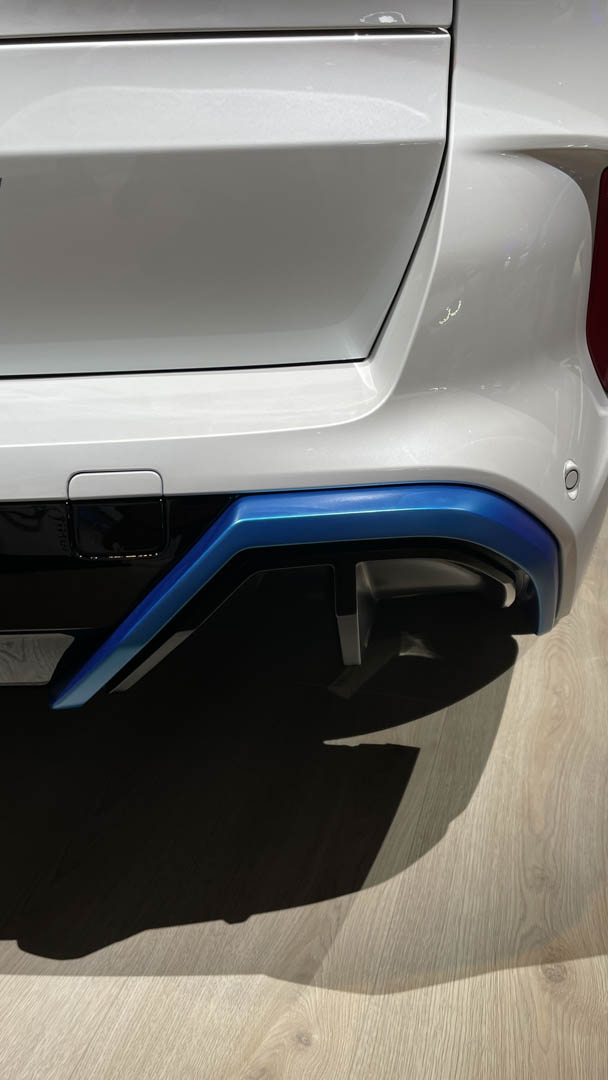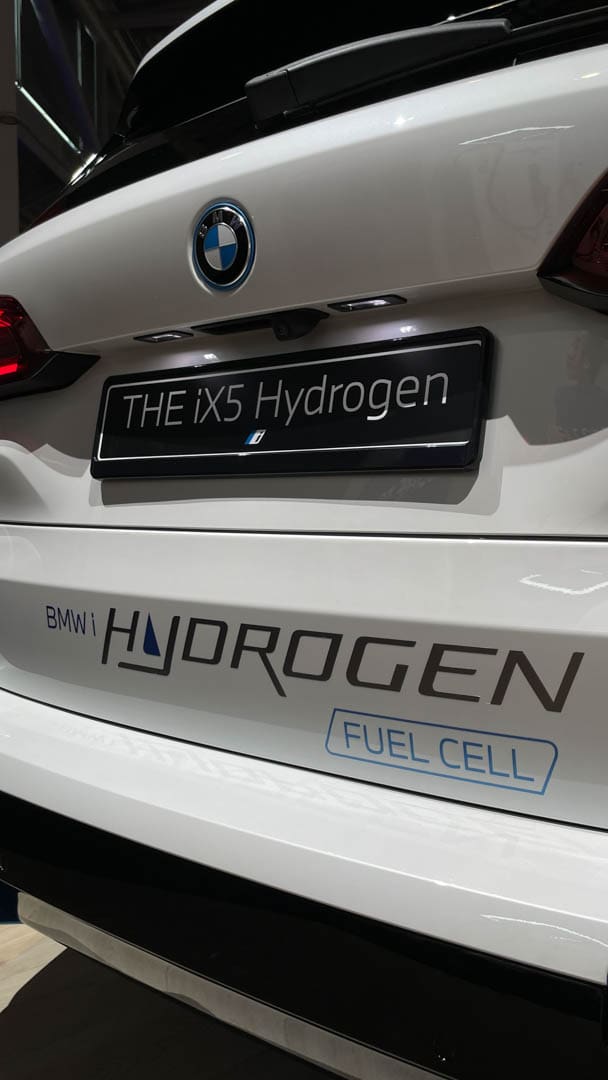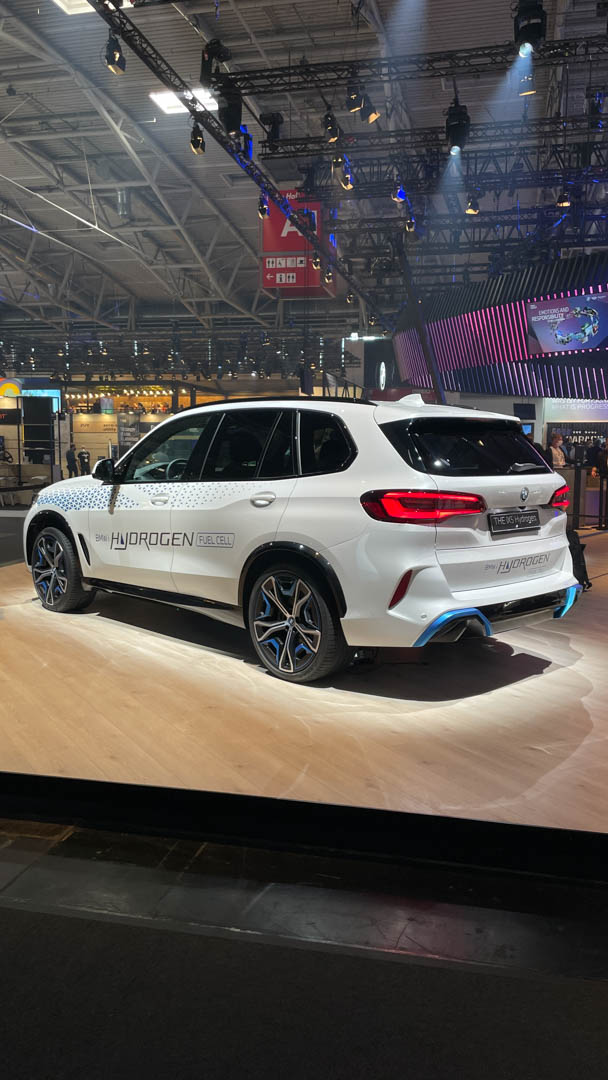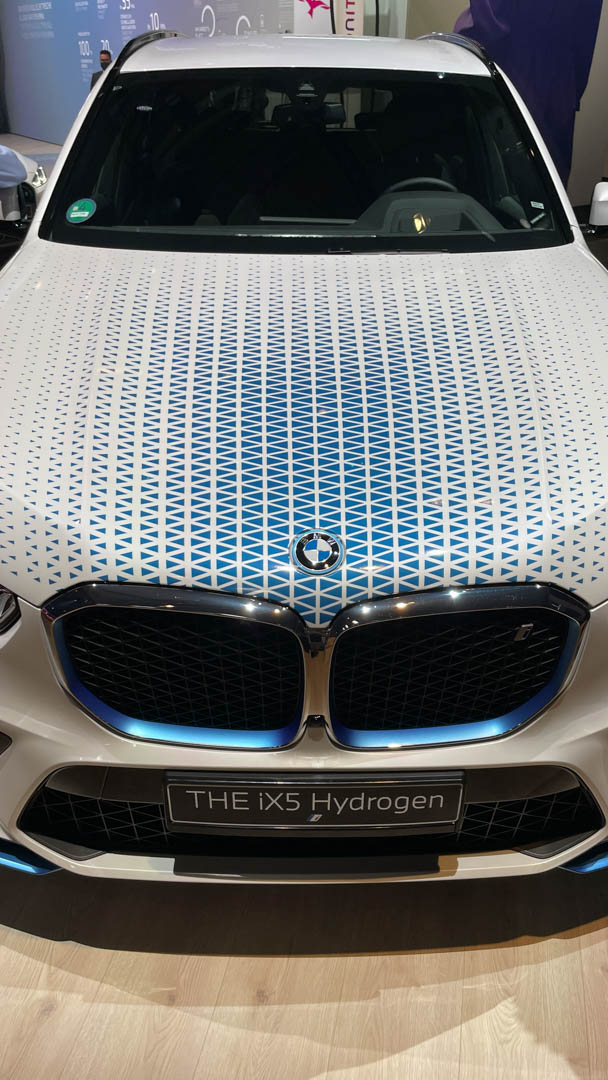BMW is one of the few brand’s that’s actively sticking with hydrogen fuel cell technology. There are admittedly a ton of benefits to hydrogen fuel cell tech for automobiles but many pitfalls as well. Most automotive brands have scrapped their hydrogen plans, in favor of full battery-electric vehicles. However, BMW is among the few that is sticking with it. Its latest hydrogen vehicle just made its debut at the 2021 IAA in Munich — the BMW iX5 Hydrogen.
On the outside, the BMW iX5 Hydrogen looks incredibly similar to the BMW iX3; it’s essentially the same as the standard car, just with some blue bits and exhaust tip replacements. So don’t expect anything radical from a design perspective.
However, under the skin, the iX5 Hydrogen couldn’t be more different from the iX3. It still uses an electric drive unit for propulsion, however it’s more powerful in the iX5 Hydrogen, making 374 horsepower. But rather than power the electric motor with a battery, it uses a hydrogen fuel cell. To store the hydrogen, two 700-bar tanks, made from carbon fiber-reinforced plastic (CFRP), are stored where the X5’s gas tank would normally be.
The main benefit of hydrogen fuel cell vehicles is their refill time. It only takes a few minutes to refill the hydrogen fuel cell, rather than the hours it can take to recharge an electric car. The downside of that is that there are far fewer hydrogen fuel stations than there are charging stations. Which means it’s incredibly difficult to find a place to refill.
However, BMW still feels that hydrogen has a future in the automotive industry. While it likely does for long-haul trucks and other commercial vehicles that require faster refill times, BMW feels it’s still a viable solution for passenger cars. If hydrogen fuel does become more popular, the BMW iX5 Hydrogen is a nice place to start.


